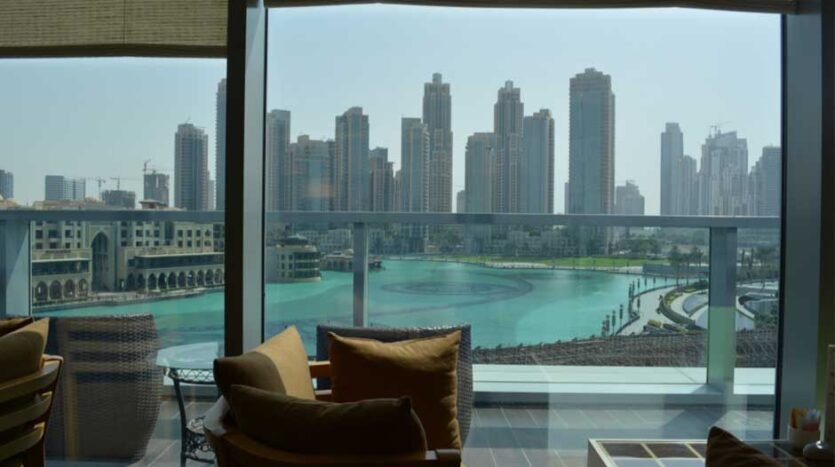Buying a Home in Dubai: Key Things to Know Before You Start
Dubai’s real estate market has gained global attention for its luxurious lifestyle, cutting-edge infrastructure, and tax-free income opportunities. Whether you’re envisioning your dream home or considering a profitable investment, buying a home in Dubai is a unique and rewarding experience.
That said, navigating Dubai’s property market requires careful planning and understanding of its processes. This comprehensive guide outlines everything you need to know about purchasing property in Dubai—from ownership types and legal steps to location planning and investment potential. By the end, you’ll be equipped to confidently explore Dubai real estate.
What Sets Dubai Real Estate Apart?
Dubai’s property market stands out for its accessibility to foreign investors, its legal clarity, and its strong rental yields. Investment in Dubai real estate can also include perks such as long-term residency visas and the opportunity to secure high returns in one of the world’s fastest-growing cities.
Additionally, its designated freehold zones allow foreign buyers to enjoy full ownership, offering stability and transparency. Add to this the city’s thriving communities, gorgeous weather, and world-class amenities, and it’s easy to see why Dubai property remains in high demand.
Key Considerations Before Buying
1. Freehold vs. Leasehold Properties
Dubai offers two types of property ownership:
- Freehold Ownership grants buyers full ownership of the property and the land it’s built on. This ownership is available in specific freehold zones, such as Dubai Marina, Downtown Dubai, and Jumeirah Lake Towers (JLT). These areas are open to foreign buyers and are highly sought after.
- Leasehold Ownership typically allows buyers to lease property for up to 99 years, though land ownership remains with the landlord. Leasehold properties often come with usage restrictions, so it’s vital to understand the terms thoroughly.
Pro Tip: Foreign investors are encouraged to focus on properties within freehold areas to ensure full ownership rights.
2. Budgeting Beyond the Purchase Price
The cost of Dubai homes for sale goes beyond the listed sale price. Here’s what you’ll need to budget for:
- Dubai Land Department (DLD) Fees: 4% of the property price.
- Agent Commission: Typically 2% of the property price, plus VAT.
- Mortgage-Related Fees (if applicable): Includes loan arrangement and property registration fees.
- Valuation Fees: Required for a property valuation, often needed for mortgage approvals.
- Service Charges: Ongoing maintenance fees based on property size and location.
For expats, the minimum down payment is 25% for properties under AED 5 million (and 20% for UAE nationals).
Pro Tip: Set aside an additional 7–8% of the property price for taxes, fees, and other upfront costs.
3. Mortgage and Financing Options
Dubai offers mortgage options for expats and residents alike, but eligibility depends on factors such as income and credit history. Here are some key details:
- Mortgage Amounts: Expats can finance up to 75% of the property value for a first home, while UAE nationals can finance up to 80%.
- Pre-Approval: Securing pre-approval simplifies your search since it sets clear financial boundaries and strengthens your credibility with sellers.
- Repayment Terms: Mortgages typically have a repayment maximum of 25 years.
Pro Tip: Work with licensed mortgage brokers to find the most favorable loan terms and simplify the process.
4. Choosing the Right Location
Dubai’s neighborhoods cater to diverse lifestyles and preferences. Here are popular options to consider based on your criteria:
- For Luxury Living: Dubai Marina and Downtown Dubai.
- For Families: Jumeirah Village Circle (JVC) and Dubai Silicon Oasis.
- For Waterfront Properties: Palm Jumeirah.
When deciding on a location, think about:
- Proximity to work, schools, and healthcare.
- Access to amenities like supermarkets, gyms, and parks.
- Future growth potential and market trends.
Pro Tip: A great location ensures both a high quality of life and solid long-term investment returns.
5. Off-Plan vs. Move-In-Ready Properties
When buying property in Dubai, you’ll need to decide between off-plan and ready (secondary) options.
Off-Plan Properties (under construction):
- Pros: Attractive payment plans and affordability.
- Cons: Potential delays in delivery or cancellations.
Move-In-Ready Properties:
- Pros: Immediate possession and transparency in property quality.
- Cons: Requires higher upfront cash compared to off-plan purchases.
Pro Tip: For off-plan properties, investigate the developer’s reputation and ensure that project funds are held in escrow accounts for buyer protection.
6. Legal Steps to Home Ownership
Here’s how the buying process unfolds in Dubai:
- Sign a Memorandum of Understanding (MoU) with the seller, outlining the terms of the sale, and pay a 10% deposit to secure the property. This step formalizes the agreement between both parties.
- Obtain a No Objection Certificate (NOC) from the developer, ensuring that the property is free of any outstanding service charges or liabilities. This document is essential for proceeding with the transfer.
- Finalize the transaction at the Dubai Land Department (DLD), where both parties will sign the necessary documents, and the buyer will settle any remaining amount. The DLD ensures the legal transfer of ownership.
- Receive your Title Deed, which serves as official proof of ownership and confirms that the property is now legally registered in your name. This marks the completion of the process.
Pro Tip: Work with RERA-certified real estate agents to avoid potential fraud and ensure smooth legal processes.
7. Investment Potential with High Rental Yields
With some areas offering rental yields of 5–8%, Dubai stands out globally as a top investor destination. Align your property investment with long-term goals by focusing on:
- High-demand, well-located neighborhoods that consistently attract tenants due to their proximity to key amenities such as schools, shopping centers, and public transport.
- Upcoming developments and infrastructure projects in the area, such as new transit lines, commercial hubs, or community facilities, which can significantly boost property value and rental demand.
Pro Tip: Use yield rates to decide if a property aligns with your financial goals. Opt for locations that promise a balance between rental income and property appreciation.
8. Residency and Visa Benefits
Investing in Dubai real estate can pave the way for long-term residence visas:
- AED 750,000 or more qualifies you for a 3-year residence visa, allowing you to live, work, and enjoy the benefits of residing in the UAE. This is a great option for investors looking to establish a base in a thriving region.
- AED 2 million or more unlocks a prestigious 10-year Golden Visa, granting you long-term residency and exclusive benefits such as enhanced security, the ability to sponsor family members, and increased flexibility for business and personal endeavors in the UAE.
Pro Tip: Always verify visa criteria with the Dubai Land Department or a trusted agent.
Make Your Dubai Dream a Reality
Buying a home in Dubai is more than just an investment; it’s an opportunity to join a thriving hub of luxury, innovation, and growth. By following these key tips and collaborating with credible professionals, you can confidently secure your place in this world-class city.
Are you ready to explore Dubai homes for sale? Start your search today and take the first step toward owning your slice of Dubai’s property market.




